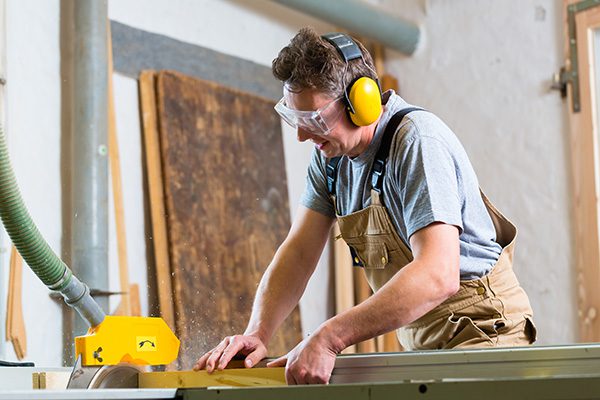How Do I Decide Which Hearing Aid is Best for Me?
There are a lot of different hearing aids available, and they are

By: admin | July 11, 2018
 And Conserving What Hearing You Have Left
And Conserving What Hearing You Have LeftYour hearing is important for both practical and social reasons, and when you begin to lose it, your quality of life suffers. Many people don't realize that they have severe hearing loss until it's too late. While it is normal to lose a small amount of your natural hearing range as you get older, it is usually a slow, gradual process that shouldn't interfere with your daily life.
Unfortunately, many people are losing their hearing quickly at a young age. If you think you might already have significant hearing loss, or you want to know ways to prevent it, then here is more information on preserving this important sense.
Generally, hearing loss happens when either the auditory nerves are damaged or there is a problem with sound conduction such as a blockage in the ear canal. Being subject to loud noises over a long period of time is one of the ways you can damage your auditory nerves.
Other factors that contribute to hearing loss include medications, illness, or trauma to the ear. While some types of hearing loss can be corrected, other types — especially the ones that deal with nerve damage — may be irreversible.
The most obvious sign that you have hearing loss is if you notice that you just can't hear the things you used to be able to hear. For example, you may notice that you don't hear as much bird song as before.
Another sign of hearing loss is having trouble following a conversation when there is more than one conversation going on in the room. If people complain that you say huh a lot, have the television up really loud, or frequently misunderstand what people say, then you may be dealing with hearing loss.
Whether or not you know you have hearing loss, you will likely want to preserve whatever hearing you have. Here are three suggestions to help you get started.
If you know you are going to be exposed to loud noises, keep a supply of earplugs on hand. You should get the highest decibel rating possible. If you have a job where loud noises can’t be avoided, then ask an audiologist to make customized plugs for the maximum protection possible.
Using earbuds and earphones puts the sound right up against your ears. It's important to not play your music too loud or for too long. Though suggested volume and time vary, most experts say to limit your use to 60% of the volume for an hour a day. If you must wear headphones for longer than that, try to get the in-ear kind. This type generally provides clearer sound at a lower, safer volume.
It's important that you see your doctor for a regular checkup to screen for health issues that may contribute to hearing loss. Check with your doctor about adding a hearing test as part as your regular physical.
That way, you can catch hearing loss earlier because you will know your hearing level history and pick up on changes. Try to live a healthy lifestyle that includes not smoking, eating healthy, and exercising moderately, all of which are known to have positive effects on your hearing.
With today's noisy society and lifestyles, hearing loss can happen without you even knowing it. Before you notice any loss of hearing, do your best to protect your ears. If you think you might have hearing loss, or you haven't had a hearing test in a while, then contact Audiology Consultants, P.C., for a screening. We can do an in-depth analysis of your hearing and provide you with the tools that can help conserve the hearing you already have.

There are a lot of different hearing aids available, and they are
By: Margy Christiansen | November 8, 2022

Did you know the two leading causes of hearing loss are loud noise and
By: admin | November 1, 2022

Just like any technology, hearing aids get a little better every year.
By: admin | July 15, 2022
